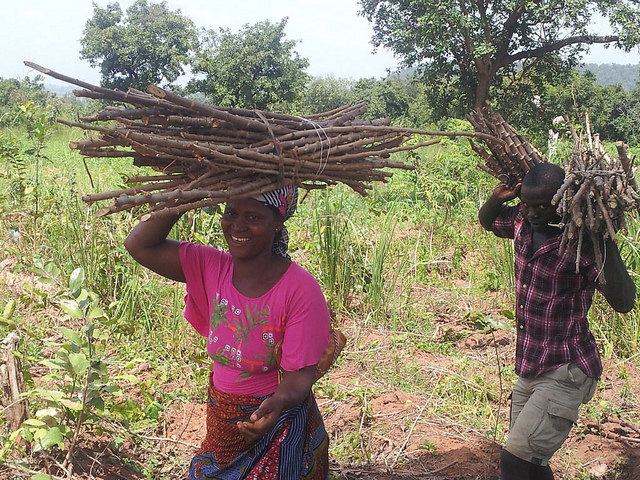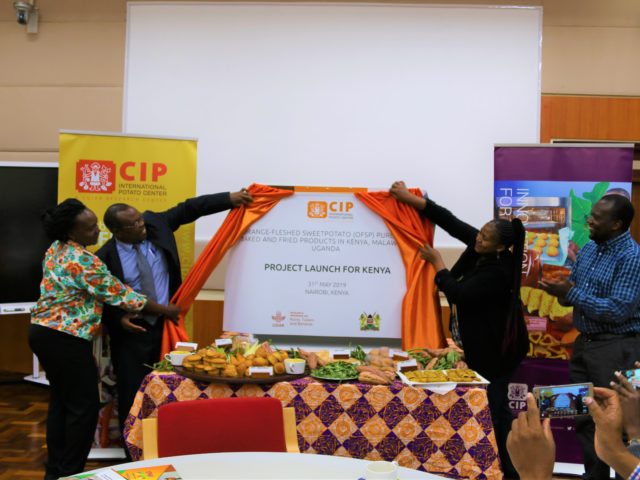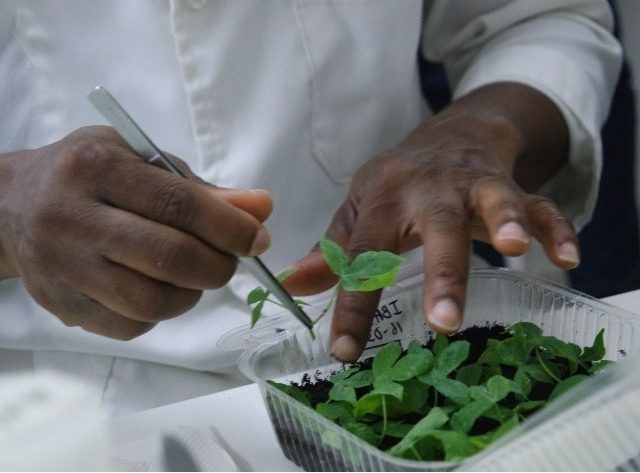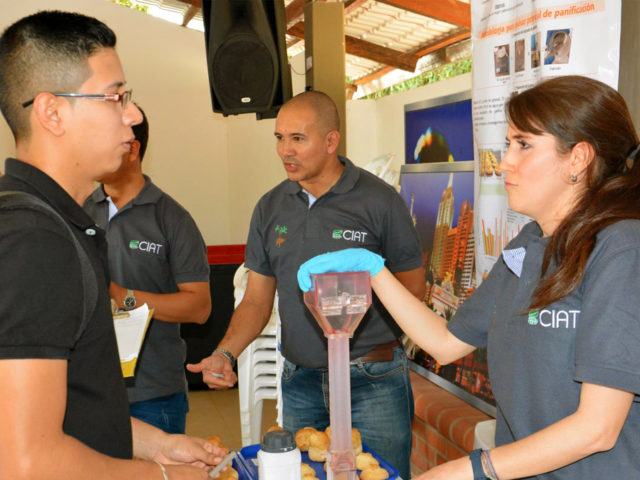A four-year project (2015 – 2019) to develop a commercially sustainable cassava seed value chain in Nigeria, was officially launched Monday 18 April at a public event at the headquarters of the International Institute of Tropical Agriculture (IITA) in Ibadan, Nigeria.
Titled ‘Building a Sustainable, Integrated Seed System for Cassava in Nigeria’ (BASICS), the $USD11.6 million project is funded by the Bill & Melinda Gates Foundation and led by the CGIAR Research Program on Roots, Tubers and Bananas (RTB).
Despite being the largest cassava producer in Africa, Nigeria’s average yields of 14 tons per hectare are less than half of what may be realistically attainable.
The project aims to help Nigerian producers reach this potential through developing a commercially sustainable cassava seed value chain based on the purchase of quality seed by farmers provided by vibrant and profitable village seed entrepreneurs and basic seed production linked to cassava processors.
These seed businesses will provide healthy seed of more productive cassava varieties leading to adoption of new varieties to improve productivity and food security, increase incomes of cassava growers and village seed entrepreneurs and enhance gender equity.
Kicking off the public launch, Dr. Nteranya Sanginga, Director General, IITA, explained that the key to industrializing cassava is to increase productivity, and this means addressing the problem with weeds, improving agronomy and providing quality seed.
Dr. Graham Thiele, RTB Program Director, gave the project overview: “Our vision is that by 2019 smallholder cassava growers are buying high quality stems of their preferred varieties and planting them with improved agronomic practices. As a result yields have jumped by at least 40% and farmers have more secure markets for expanded production… Novel rapid multiplication technologies have lowered the cost of producing seed and accelerated the introduction of new varieties. Vibrant new businesses have been created all along the cassava seed value chain creating employment especially for women and youth.”
Mrs. Doyin Awe, Representative of the Hon. Minister, Federal Ministry of Agriculture and Rural Development gave the official address and public launch. She noted that exciting new opportunities are opening for cassava, but planting materials for cassava present special challenges as they are bulky and perishable. She committed the full support of the Ministry to the new project and thanked the Bill & Melinda Gates Foundation for providing the funding.
Dr. Julius Okonkwo, Executive Director, National Root Crops and Research Institute (NRCRI), noted that much of Nigeria’s cassava seed system was informal and that NRCRI was very pleased to form part of the project in developing a modern seed system for cassava.
Dr. Yemi Akinbamijo, Executive Director of the Forum for Agricultural Research in Africa (FARA) said: “I am excited to get back to BASICS so that we could move forward for a Food Secure Nigeria”. He emphasized the need to work on the entire innovation to impact pathway and said that today history is being made, and that he was very proud to see such a great initiative unveiled.
Mr. Louw Burger of Thai Farms, a cassava flour processing company, explained that better roots are easier to harvest and that its extremely important to start with the right seed.
Following the launch the project partners including National Agricultural Seed Council (NASC), the National Root Crops and Research Institute (NRCRI), International Institute of Tropical Agriculture (IITA), Catholic Relief Services (CRS), Context Global Development, and FERA (UK) took part in a participatory workshop to finalize work plans and move ahead with the project.
# # #
The CGIAR Research Program on Roots, Tubers and Bananas
The CGIAR Research Program on Roots, Tubers and Bananas (RTB) is a broad alliance of research-for-development stakeholders and partners. Our shared purpose is to exploit the underutilized potential of root, tuber, and banana crops for improving nutrition and food security, increasing incomes and fostering greater gender equity – especially amongst the world’s poorest and most vulnerable populations.
For further information and interview requests please contact:
Holly Holmes
Communications Specialist
CGIAR Research Program on Roots, Tubers and Bananas
h.holmes@cgiar.org



